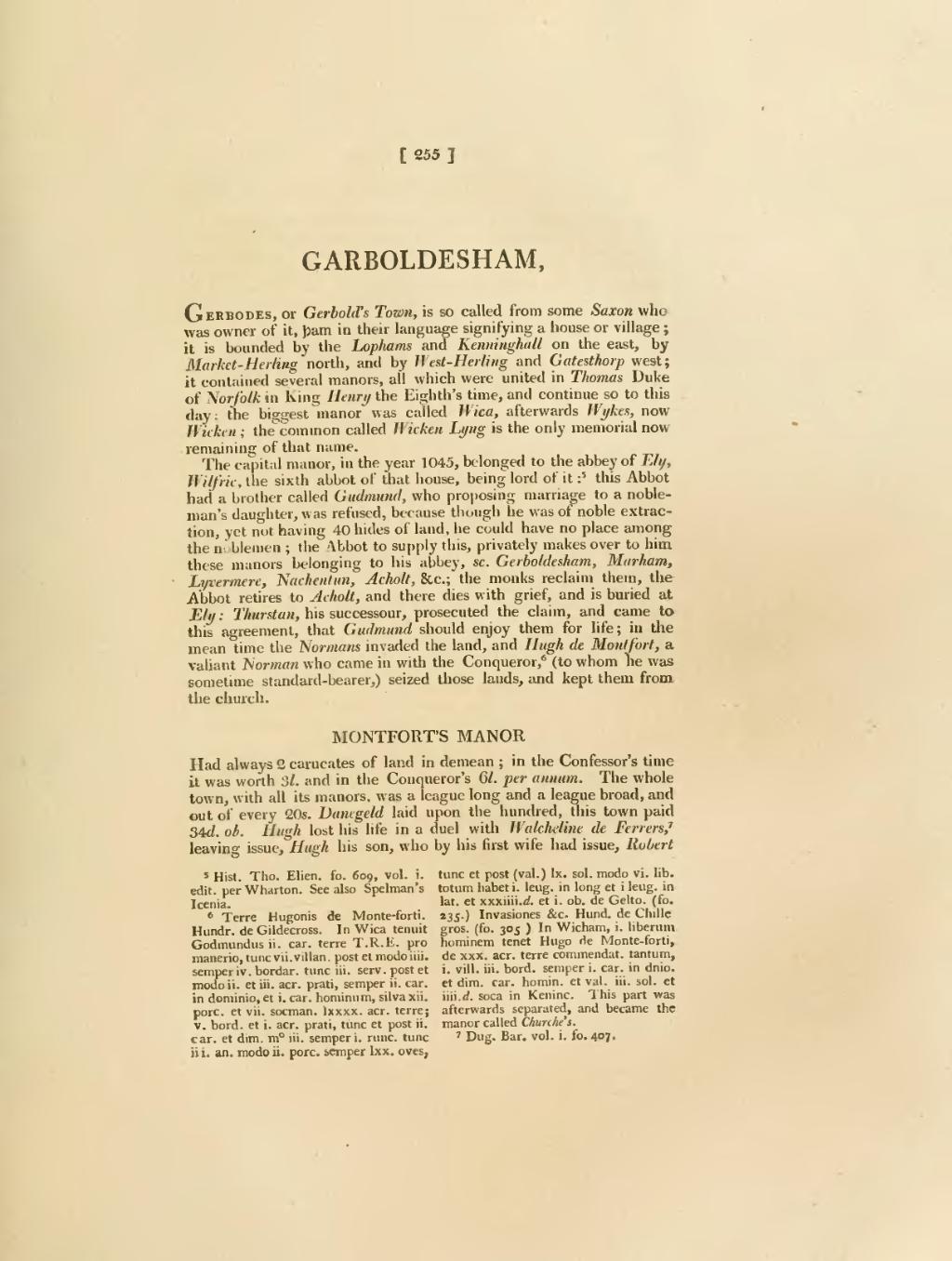GARBOLDESHAM===
Gerbodes, or Gerbold's Town, is so called from some Saxon who was owner of it, [ham] in their language signifying a house or village; it is bounded by the Lophams and Kenninghall on the cast, by Market-Herling north, and by West-Herling and Gatesthorp west; it contained several manors, all which were united in Thomas Duke of Norfolk in King Henry the Eighth's time, and continue so to this day; the biggest manor was called Wica, afterwards Wykes, now Wicken; the common called Wicken Lyng is the only memorial now remaining of that name.
The capital manor, in the year 1045, belonged to the abbey of Ely, Wilfric, the sixth abbot of that house, being lord of it: this Abbot had a brother called Gudmund, who proposing marriage to a nobleman's daughter, was refused, because though he was of noble extraction, yet not having 40 hides of land, he could have no place among the noblemen; the Abbot to supply this, privately makes over to him these manors belonging to his abbey, sc. Gerboldesham, Marham, Lyvermere, Nachentun, Acholt, &c.; the monks reclaim them, the Abbot retires to Acholt, and there dies with grief, and is buried at Ely: Thurstan, his successour, prosecuted the claim, and came to this agreement, that Gudmund should enjoy them for life; in the mean time the Normans invaded the land, and Hugh de Montfort, a valiant Norman who came in with the Conqueror, (to whom he was sometime standard-bearer,) seized those lands, and kept them from the church.
Montfort's Manor
Had always 2 carucates of land in demean; in the Confessor's time it was worth 3l. and in the Conqueror's 6l. per annum. The whole town, with all its manors, was a league long and a league broad, and out of every 20s. Danegeld laid upon the hundred, this town paid 34d. ob. Hugh lost his life in a duel with Walcheline de Ferrers, leaving issue, Hugh his son, who by his first wife had issue, Robert
